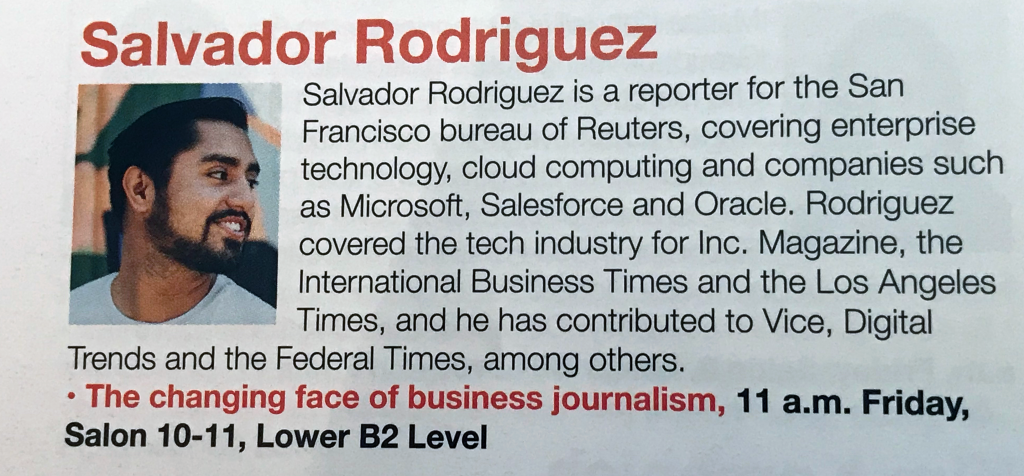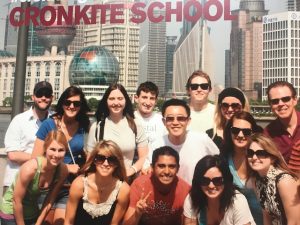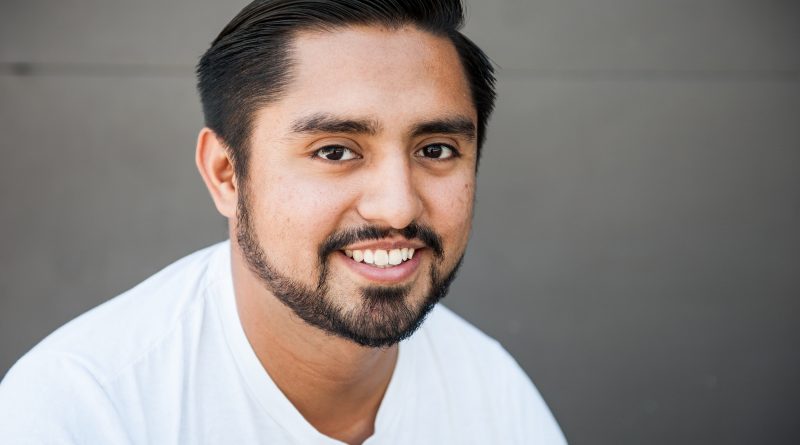Help Wanted: Consider Business Journalism, said Reuters Technology Correspondent
If you go to Arizona State University’s Walter Cronkite School of Journalism, write for companies like the Los Angeles Times, the International Business Times, and Inc. Magazine, and then land at Thomson Reuters as a technology correspondent, you could be following in the footsteps of Salvador Rodriguez.

According to Rodriguez, who spoke as a featured speaker to a room full of high school journalists at the JEA/NSPA convention April 12-14 in San Francisco, “There’s a lot of space for oversight and watchdog reporting” in the tech field.
He encouraged student reporters to give business journalism a chance. For one thing, the niche has “more job openings,” he said. Moreover, the roll out of diversity is a societal issue that’s important to cover.
Andrew Leckey, president of the Donald W. Reynolds National Center for Business Journalism at ASU, said his former student was active from his freshman year on. Many Cronkite journalism students have perhaps two or three internships during their college careers, he said, whereas Rodriguez had nine.
On a phone call to Leckey, this writer heard story after story of Rodriguez’s “doggedly logical” approach to his work.
“He has a bright future because tech is an area that never goes away,” Leckey said. “There’s money in everything.”
Looking out over the historical journalism landscape, Leckey said Rodriguez found an area of great demand and has made himself capable and needed in this area. In Leckey’s day, he said much of journalism “used to be observational.” Often, journalists who bemoaned their math skills were able to succeed by covering events, witnessing them. “But now, you have to back up what you say.”
He added, “There is business and economics in everything.”

Echoing his mentor’s philosophy, the young reporter said the main difference between working as a journalist for business publications and other ones, for example, is the emphasis on working with numbers (culling earnings statements, calculating percentages, and so on). Although every journalist needs such mathematical skills, a business journalist will drown without it.
“Statistics needs to be the forte, not the exception,” Rodriguez said.
Other factors Rodriguez mentioned are the hours. Because one has to work primarily when the markets are open, the work tends to run on an 8 to 5 schedule, so a normal schedule and holidays off are more predictable.
What doesn’t follow a schedule are the types of stories that have been and continue to need investigation in the tech industry; a gamut of human interest stories are waiting to be told.
“Some executives and technologists think they can get away with stuff, and that is a breeding ground for journalists,” Rodriguez said.
He listed a litany of tech business troubles that journalists helped bring to light: Facebook founder Mark Zuckerberg’s testimony to Congress about privacy issues; General Data’s Protection Regulation; and Theranos‘ failure to produce a medical innovation.
In other words, there needs to be a David for every Goliath. “Where there are influential companies, there is a need for journalists to check accountability on behalf of consumers.”
Moreover, business reporters are in prime positions to cover issues such as diversity. Someone needs to tease out the enterprises that are using above-board diversity tactics from those that are using PR gimmicks. Where there isn’t diversity, studies show there are usually problems.
“Because [diversity] is a societal issue, there are a lot more companies who aren’t doing enough,” Rodriguez said.
Reminders can be found easily in the Wild, Wild Internet: Uber, Enron, Upload VR, Ignition Partners, and Binary Capitol, to name a few.
Rodriguez also spoke about companies who are using diversity policies in positive ways: for example, Bevel Razor is serving an uncontested market area for hair and grooming products for African American men, and Slack is tapping into more employees of color and conducts businesses in offices outside of San Francisco to make working in the tech field more affordable for families.
Former ASU Professor Leckey said Rodriguez “is able to find the current trends, but also stick to financial analysis.”
Leckey is quick to point out, however, that Rodriguez was an “active journalism student from his freshman year on.” From a raw talent then, Rodriguez has metamorphosed into a “sophisticated self.”
That self is now becoming a strong voice in the technology field, which is the “very quickest way to the best salaries and the best opportunities.”
“He is in exactly the right spot to excel,” according to Leckey.
Links to stories written by Salvador Rodriguez
https://www.inc.com/salvador-rodriguez/eren-niazi-patrick-willis.html
https://www.reuters.com/journalists/salvador-rodriguez?view=page&page=2&pageSize=10



